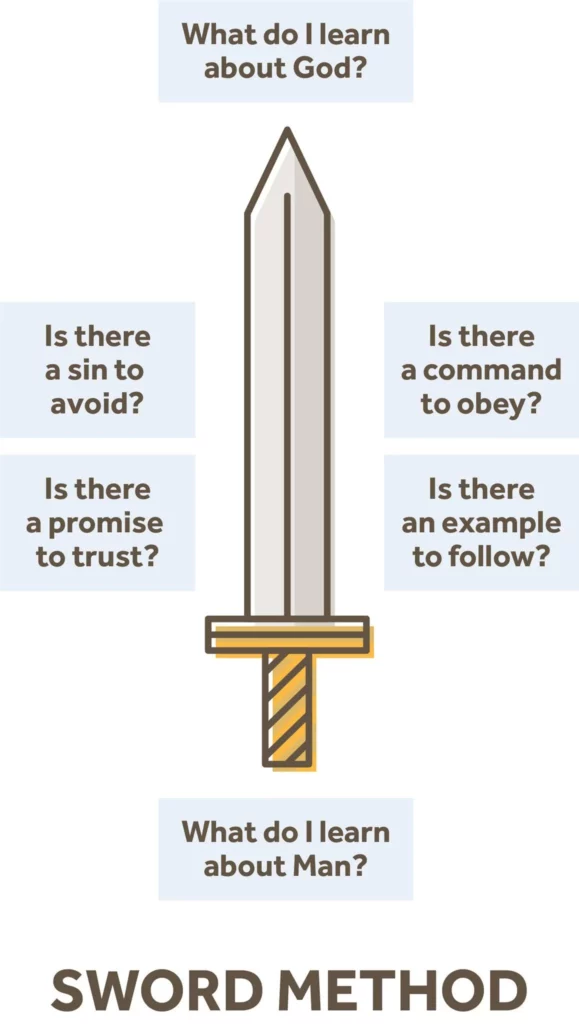In this episode of the One Degree Podcast, we’re going back to the basics and discussing Bible Study tips for beginners! (Really this is for anyone who wants to go back to the basics). Even if you’ve been reading your Bible for years, it’s a good to come back every once in a while to the fundamentals.
We’re gonna keep it short and sweet and give you the Sparknotes version, so let’s dive in!
Difference between the Old and New Testaments
We may assume that we know the difference, but this is often the first question that new believers will ask about the Bible!
The Old Testament
The Old Testament is the same as the Hebrew Bible (we’re not going to get into the weeds about the Catholic Bible vs. the Protestant Bible). It is written mostly in Hebrew, with a little bit of Aramaic.
The Old Testament tells the story of the world and God’s chosen people, Israel. Ultimately it points towards the coming Messiah who will save people from their sins. Israel is God’s chosen people, but God will bless the entire world through Israel.
It is raw, it is honest. It doesn’t try to hid the weaknesses or sin of the Israelites.
The New Testament
The New Testament tells us the story of the life of Jesus Christ, God incarnate, who lived a perfect life, died for us, and rose from the dead to save whoever confesses their sin and trusts in him. It also tells the story of the church and what will happen at the end of time.
Also, it is written in Greek.
The entire Bible points to Jesus, the Messiah.
Bible Translations
Now, let’s look at different Bible Translations (in English). How do you pick one?
There are three main translation philosophies:
- Formal equivalent: word-for-word (prioritizes literal accuracy)- ESV, NASB
- Dynamic equivalent: thought-for-thought (prioritizes readability)- NIV, NLT
- Optimal equivalent: balance of both- CSB
We love ESV for deep study, but NIV is great for readability (Xan really likes CSB).
Various Genres of the Bible
There are many genres but here’s a general overview:
- Narrative – stories of what happened (Exodus, Ruth, Acts)
- Poetry – Psalms, books with poetic components
- Wisdom – wise counsel; lots of one-liners (Proverbs, Ecclesiastes)
- Prophecy – God’s word to His covenant people (four major prophets and 12 minors)
- Letters/Epistles – communication to individuals/groups (Romans, Ephesians, etc… there are 21 in the NT)
- Apocalyptic – symbols/imagery of destruction of world (Revelation, Zechariah)
- Side note: If you are super confused when you read it and are having literally no clue what you’re reading, you’re likely reading apocalyptic literature.
Where to Start
One of the best places to start is the Gospels, especially the book of John. Why is that?
The gospels are books about the life, death, and resurrection of Jesus. There are four gospels: Matthew, Mark, Luke, and John. They highlight this and can help you familiarize yourself with who all the Scriptures are pointing to!
You can start at the beginning and work your way through, but the OT might be hard to read if you are not familiar with the one that the OT points to (Jesus).
The book of John is very clear, and it clearly points to both the deity and humanity of Jesus while clearly explaining the life, death, and resurrection of Jesus.
Tips for consistency
- Pick a time!
As Christians, we often idolize the morning, but a time that you know you can consistently get into the Word is crucial. It doesn’t matter when it is! Figure out a time that will be consistent, with no interruptions, and when you can focus. Give the Lord your best time. - Start small
Start with a chapter a day or 10 minutes. Don’t seek to stay there, but start there! 5 minutes a day is better than reading once a month for 30 minutes. Start small and grow from there!
Pray before you read
This can be easy to say, but how do we actually pray and incorporate it into our Bible Study?
Here are two simple models you can use to pray:
- The Lord’s Prayer:
You can literally read it and pray it word for word. Or you can use it as a model and springboard your own prayers off of it. - ACTS model:
Adoration, Confession, Thanksgiving, and Supplication (interceding on behalf of others and yourself)
Tips for Reading
Start by asking what the passage says about God. Often times, we make our reading human centered or application centered.
The primary objective of Scripture is learning more about and falling more in love with God. Yes there will be applications from our reading, but those stem from submitting ourselves to the Holy Spirit and being transformed.
Use the SWORD Method! We think this is one of the best Bible Study methods you could use- super practical and effective. Check out this graphic below that walks you through the method.

This is one of the best introductory methods to reading the Bible. To remember it, just remember these steps: God, Man, Sin, Promise, Example, Command. It helps if you read through the passage again for each step.
What about when I see something confusing
What happens when you come across a really confusing passage?
Remeber, the goal of Bible Study is to determine what the author was trying to communicate to his audience. Approach the text in humility. It’s not what you want it to mean, but what the original author was trying to communicate to the original reader.
Write your question down!
Consult godly people, ask them questions, and ask them why they interpret the passage the way that they do.
Consult study bibles and other resources.
Also, you can google, but be aware of predispositions that a lot of websites have, and take that into account. If you do google, consider the reasoning for why people land where they do. Try to ensure that whoever you are reading is trying to stay faithful to the text.
One Degree Shift
Read your bible!
If you’re not consistent, pick a time and get consistent. Lead with the discipline and let the motivation follow.
Want to Stay A Little Longer?
- Listen to these other episodes on studying theology, misused Bible verses, and going deeper in Bible Study.
- Download this guide to get started on going deeper into reading your Bible!
- Subscribe to our weekly newsletter! We deliver one theological thought (among other things), once a week
- Follow along on Instagram for even more education, news, and fun!

+ show Comments
- Hide Comments
add a comment